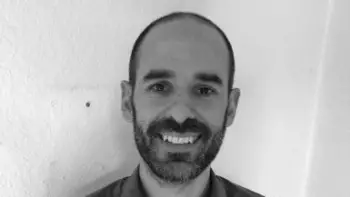Chairholders
What happens to citizen science projects after scientists leave?
A case for a more critical citizen science approach
Dr Sebastián Ureta has been appointed the next Prince Claus Chairholder (PCC) for a period of two years as of 1 September 2023. He will focus on Technology and Citizen Science: Connecting Local Environments with Climate Change. The date of his inaugural lecture is to be announced.
For the upcoming months, Sebastián has a clear vision for his tenureship. This ties in with the research he’s been doing for the last years.

Addressing the shortcomings of citizen science
“I’ve been doing applied research on the general topic of citizen science in relation to the environmental crisis. With a multidisciplinary international team, we’ve developed a cheap and easy to use DIY-toolkit for people to assess concentrations of heavy metals like arsenic and lead pollution in soils. We’ve worked with low-income communities in Northern Chile that have been affected by pollution from mining waste. But after successfully testing with them the prototypes and the methodology we have developed, we were faced with the challenge on how to move the project forward. A challenge that many technology-centered citizen science projects all over the world face. Many projects are very successful in developing and testing prototypes but face steep challenges in turning such prototypes into real solutions that local people could actually use.
To me this is a critical shortcoming of citizen science. Especially in the global South. Nowadays, a lot of people view citizen science as inherently good and necessary. And commonly for the scientists and funding bodies it is. Scientists collect data, write papers and can apply for new funds. Funding bodies can show that their schemes also have an impact on the general public. But I wonder if citizen science has really made a difference for the participating people in the global South? What are they left with? This can be viewed as the ‘dark side’ of citizen science.”
Impact citizen science also for both participants and scientists
This shortcoming is where Sebastián’s focus for the PCC tenureship comes into play. “I would like to go to the locations of some successful citizen science projects of the last decade – primarily located in Latin America – and see if and what difference they actually made to the lives of the participants and their communities. In other words: What’s the impact of the citizen science projects after the scientists leave? It’s a critical and relevant question that we need to address. Our hypothesis would be that very little substantial change happens locally, due to a myriad of reasons. I would like to explore this, together with my postdoctoral researcher: how can we rethink the way in which citizen science projects are implemented so they are not only relevant to the scientists but also have durable impact for the people and environments they have been working with.”
“What’s the impact of the citizen science projects after the scientists leave? It’s a critical and relevant question that we need to address.”
Research focus in part fueled by personal experiences
This question is in part fueled by personal experiences. “We were doing research with people in the city of Arica, Northern Chile, in a low income area that suffers from extreme levels of heavy metal pollution in the soil. Personally, I was quite naive about our local impact on the issue, especially regarding the fight against structural inequalities. I thought that the participants in our project would be able to appropriate and use the devices and methods we have developed to strengthen such fight. What we’ve seen in the two years after, however, is that nothing really has changed even among the participants that were highly motivated to do something. For many practical and structural reasons, it was very difficult for them to fight inequality and claim for justice using the citizen science tools we train them to use.”
Creating guidelines for a more impactful citizen science
For the two years of his tenure, Sebastián envisions two phases. “In the first phase we would like to do an ‘autopsy’ of citizen science projects as detailed above. The second phase will be focused on using the influence of the PCC to engage with stakeholders, funders, NGO’s and other relevant partners to present the evidence and think about what we can do to strengthen the impact citizen science has on local people and communities. To come up with notions and guidelines for a more critical, impactful citizen science that has a real lasting effect. My hope would be to try to initiate a much more mature discussion about citizen science in the global South, to develop a critical citizen science approach that considers not only the practice of science in local settings but also existing political and socio-economical complexities. To make a citizen science that is maybe less flashy and trendy, but more committed to long term collaborations aiming at a durable impact.”